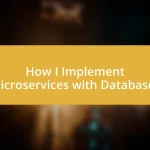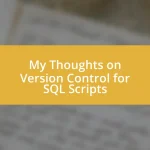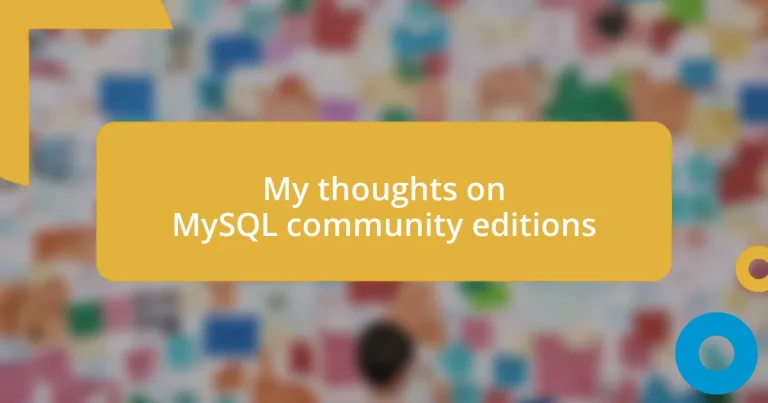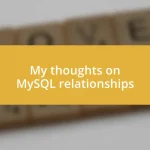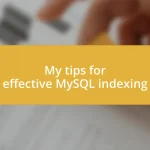Key takeaways:
- MySQL Community Editions are accessible, open-source solutions that facilitate collaboration and support among users, enhancing the experience of database management.
- Key features include open-source availability, comprehensive documentation, and flexibility in deployment, but limitations such as lack of advanced features, reliance on community support, and potential scalability issues exist.
- In comparison to MySQL Enterprise Edition, the Community Edition lacks advanced security features, dedicated support, and enhanced performance monitoring tools, making it less suitable for high-stakes applications.
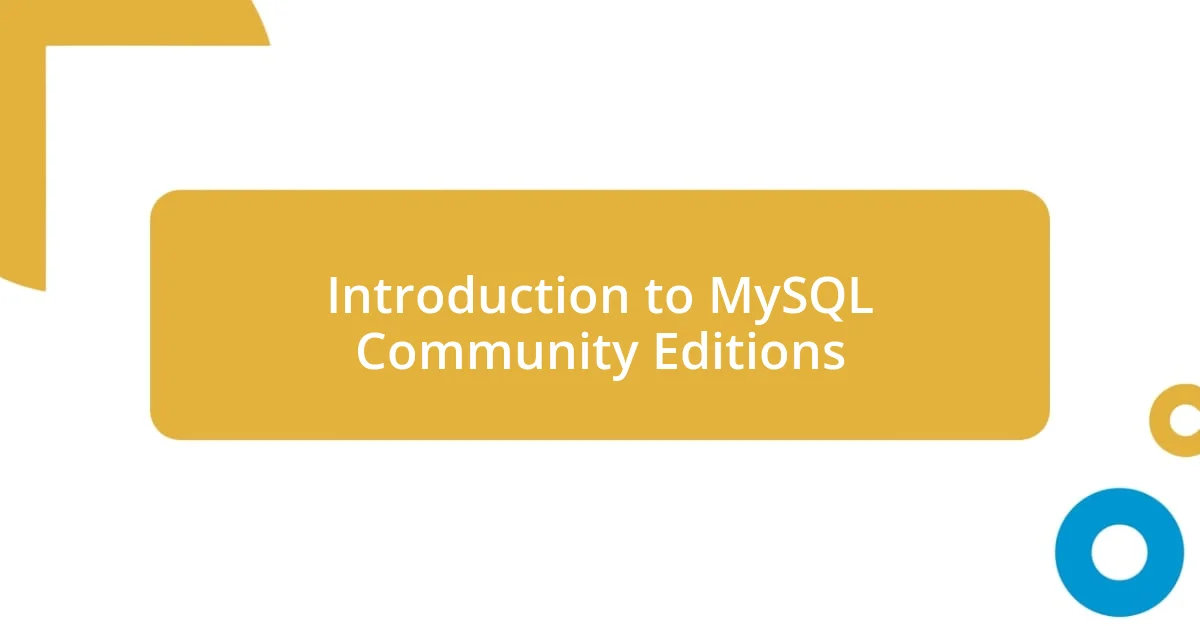
Introduction to MySQL Community Editions
MySQL Community Editions are a fascinating aspect of database management. These open-source versions provide developers and businesses access to MySQL’s powerful features without the financial burden often associated with proprietary software. I remember my first encounter with this edition; it was like finding treasure in a sea of options, and I instantly appreciated the robust capabilities it offered for building dynamic applications.
What’s intriguing is how MySQL Community Editions foster a sense of belonging among users. I often find myself diving into forums and community discussions, sharing challenges and solutions with fellow enthusiasts. Have you ever felt that rush of excitement when you solve a tricky database issue thanks to someone else’s shared experience? That’s the essence of the MySQL community—persistence and collaboration that make the learning journey enjoyable and impactful.
Furthermore, the flexibility of MySQL Community Editions allows for a wide array of use cases, from small-scale projects to large enterprise applications. In my own projects, I’ve relied heavily on this version to scale applications efficiently. It’s empowering to know that the same tools are available to everyone, regardless of their project size or budget. What more could you ask for in a database solution?
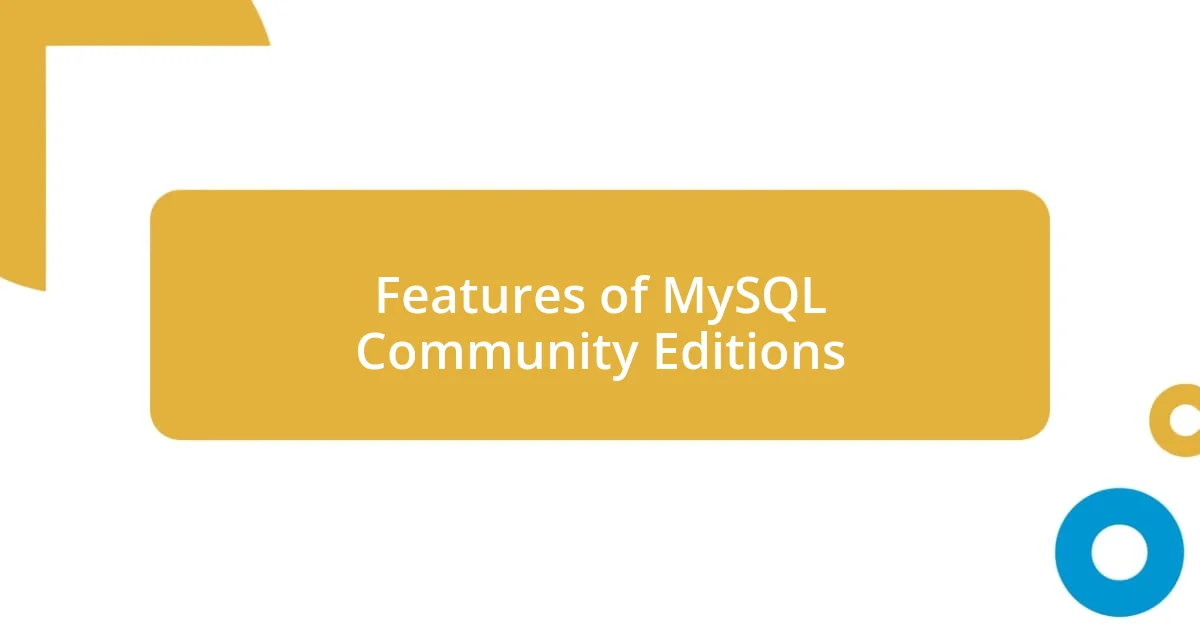
Features of MySQL Community Editions
The features of MySQL Community Editions truly stand out, making it an exceptional choice for both beginners and experienced developers. I recall a project where I successfully implemented MySQL’s built-in indexing functionalities, which significantly improved data retrieval speeds. It was exhilarating to witness how a simple tweak could enhance the performance of my application so dramatically.
Key features include:
- Open Source: It’s completely free, allowing anyone to modify and share.
- Comprehensive Documentation: I always find helpful guides and examples that ease the learning curve.
- InnoDB Storage Engine: Offers transactions and foreign key support, critical for maintaining data integrity.
- Flexibility in Deployment: You can run it on various environments, whether it’s a local machine or cloud-based.
- Community Support: There’s a wealth of forums and resources, where I’ve often turned to fellow users for quick resolutions and shared knowledge.
It’s comforting to know that I’m part of a larger community, sharing common tools and learning together through collaborative insights. This shared experience not only enriches my skill set but also builds a sense of camaraderie that I value deeply.
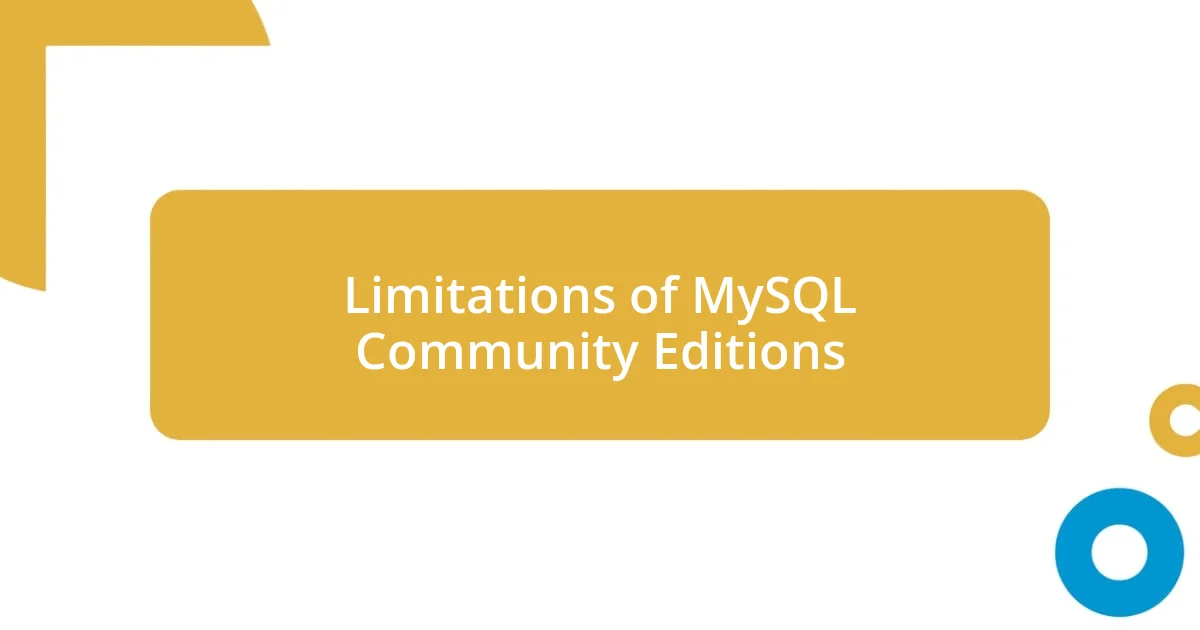
Limitations of MySQL Community Editions
The MySQL Community Editions, though powerful, do come with limitations that can impact users depending on their needs. One significant drawback is the lack of advanced features found in the Enterprise Edition. For instance, I once faced a situation in a project where we needed support for high availability systems. While the Community Edition offered many robust tools, the absence of built-in clustering capabilities meant we had to seek alternative solutions, which added complexity to our project.
Another limitation I encountered relates to support. The Community Edition thrives on user-generated resources, but when I needed urgent help during a critical system failure, I realized that official support services are virtually non-existent. This can be daunting; in high-stakes environments, having immediate access to professional support can make all the difference. How do you navigate those moments when the clock is ticking and you’re stuck? You really have to rely on community forums, which might not always provide the timely feedback you need.
Lastly, scalability can become an issue. I learned this the hard way when I had a mid-sized application that grew rapidly due to an unexpected spike in users. While MySQL Community Edition handled initial loads well, performance began to degrade as data volumes increased. It forced me to rethink our data architecture earlier than anticipated. Over time, I’ve realized that while the Community Edition offers a fantastic starting point, planning ahead for scalability can save a lot of headaches down the line.
| Limitations | Community Edition |
|---|---|
| Advanced Features | No clustering, replication options are limited |
| Official Support | Reliance on community forums, no direct support |
| Scalability | Performance drops with higher data volumes |
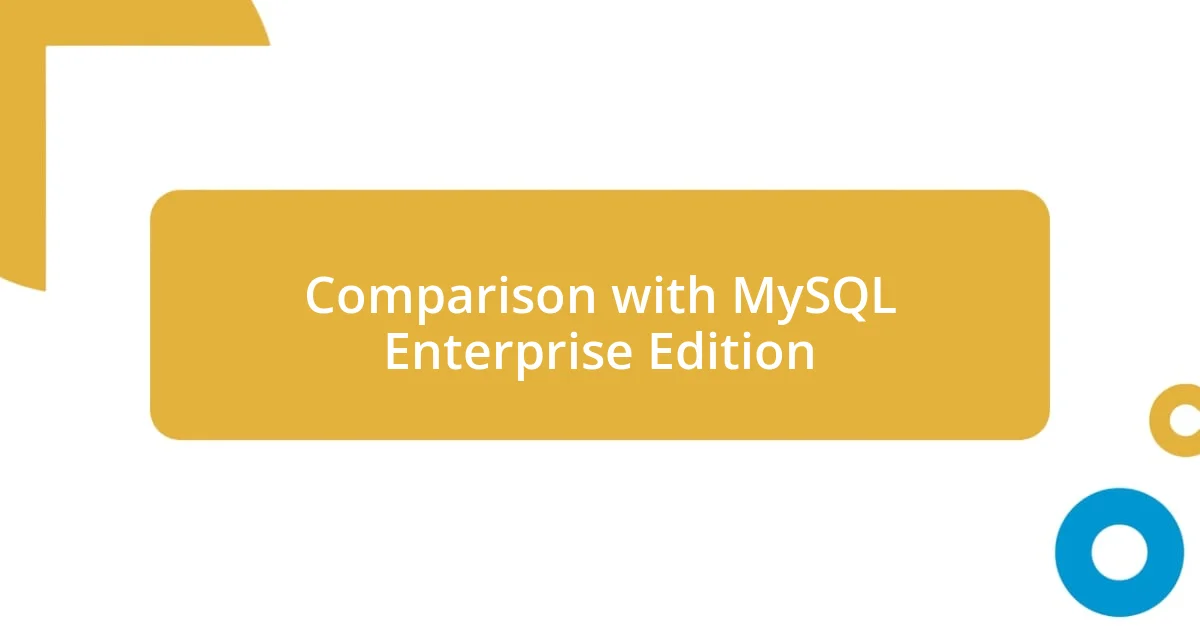
Comparison with MySQL Enterprise Edition
When comparing MySQL Community Edition with MySQL Enterprise Edition, the differences in feature sets are stark. I remember being excited when I first tried the Community Edition, yet it became clear that the Enterprise Edition offers robust features for large-scale applications. For instance, when I was on a project that demanded rigorous data security, I discovered that the Enterprise Edition includes advanced auditing and encryption options that simply aren’t available in the Community Edition. Can you imagine managing sensitive data without those extra layers of protection?
Another key difference lies in support options. While community forums can be helpful, I’ve often thought about how comforting it would be to have dedicated support. In one instance, when I encountered a puzzling performance issue late at night, the wait for responses on forums felt excruciating. With the Enterprise Edition, the promise of 24/7 support could have turned a frustrating experience into a quick resolution. It’s in those moments that you realize the value of having direct access to expertise.
Moreover, the Enterprise Edition features include enhanced performance monitoring and optimization tools. Back when I was working on a high-traffic application, I noticed how tracking real-time performance metrics became increasingly crucial. The advanced tools available in the Enterprise Edition allowed for proactive strategies, which I often wished I had access to during that high-stakes project. Wouldn’t it be liberating to navigate performance challenges instead of scrambling at the last minute? It’s these features that make a significant difference for businesses that rely on MySQL for critical operations.
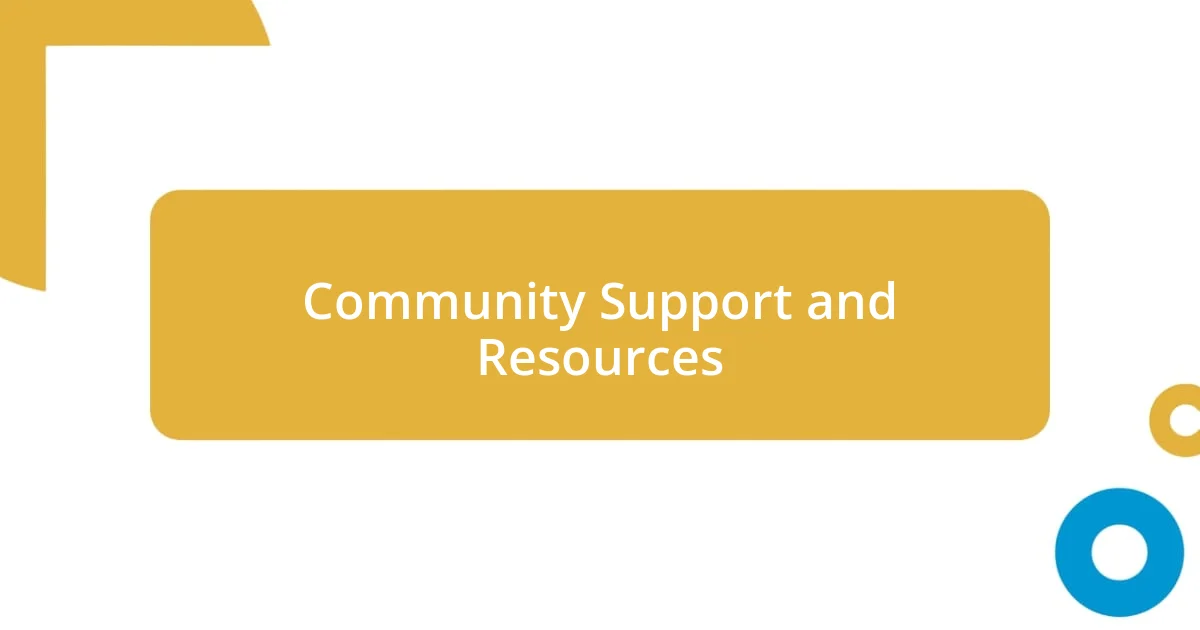
Community Support and Resources
When diving into the vast sea of community support for MySQL Community Editions, I often find myself reflecting on my early experiences. During my first foray into using the software, I turned to online forums filled with passionate users. Although these forums were packed with valuable knowledge, there were moments when I felt overwhelmed by the sheer volume of information. How do you sift through so many voices to find the right solution? I learned that patience and persistence are key, but it can still feel a bit daunting when you need answers quickly.
I remember one time when I posted a question about optimizing query performance on a popular forum. The responses varied widely in complexity, and while I appreciated the enthusiasm, it left me wondering which advice was most applicable to my situation. I realized that while the community is resourceful, it lacks organization. Have you ever felt that way, trying to navigate a sea of well-meaning advice without a clear direction? It’s a common experience that many users face.
In my journey, I discovered that besides online forums, there are also numerous blogs and YouTube channels dedicated to MySQL. I often found myself watching tutorial videos during late-night coding sessions, gleefully discovering tips and tricks that made my work easier. These resources complemented the community discussions and provided a sense of camaraderie. Ultimately, I think the community support is a mixed bag—rich with potential, yet often requiring one to forge their own path through the maze of information.

